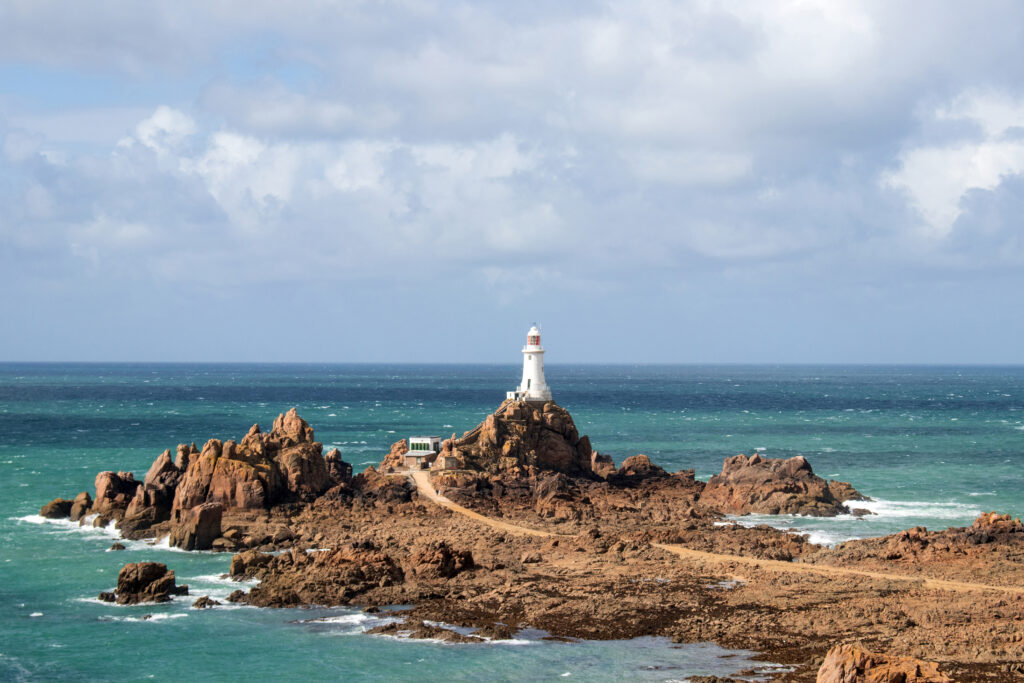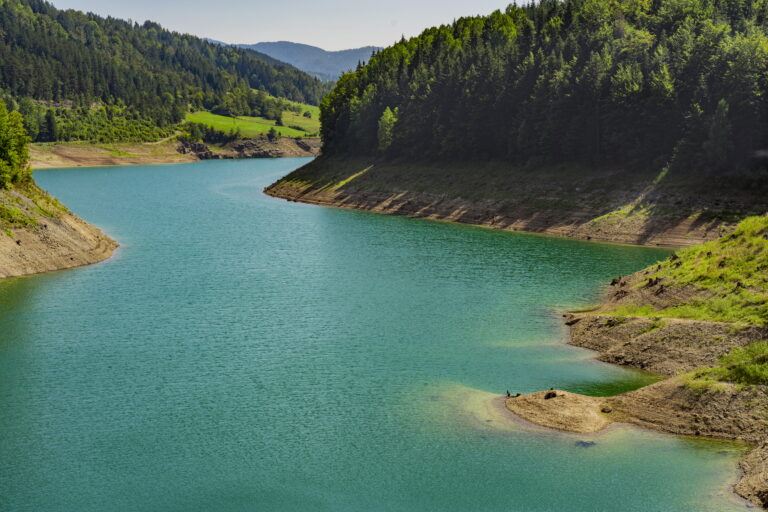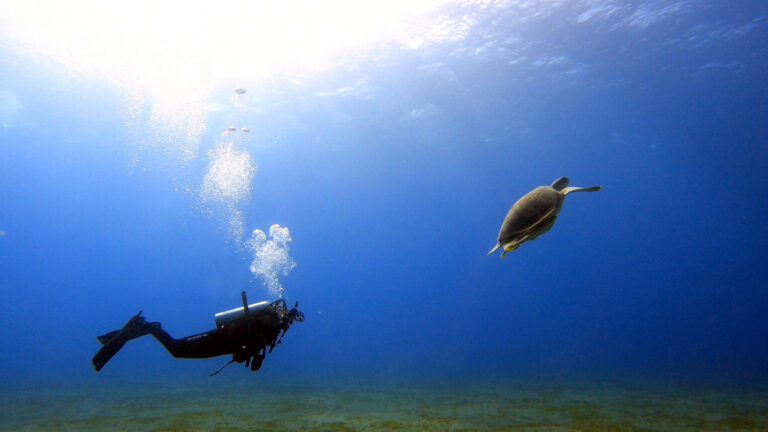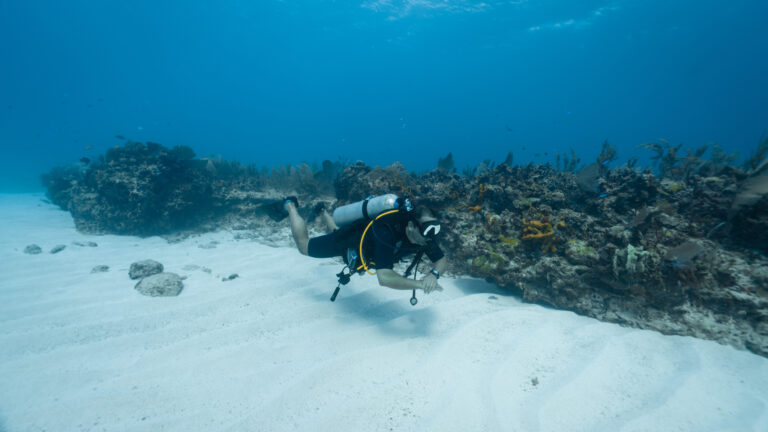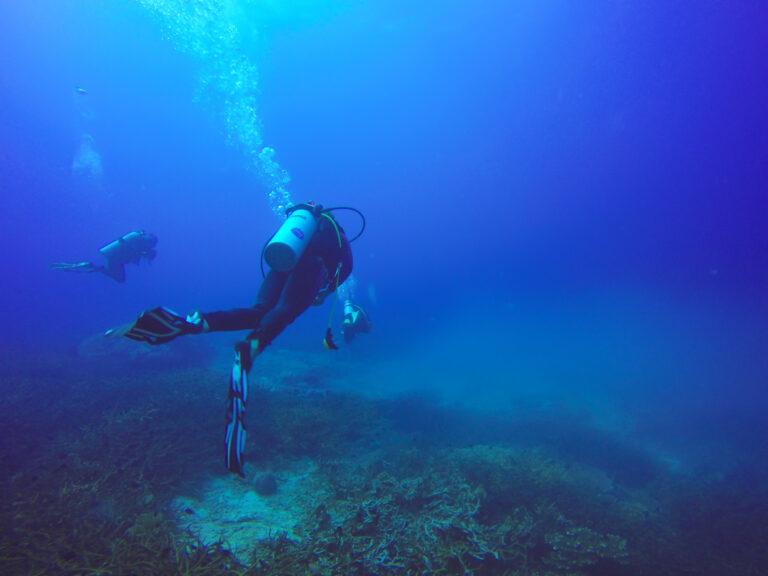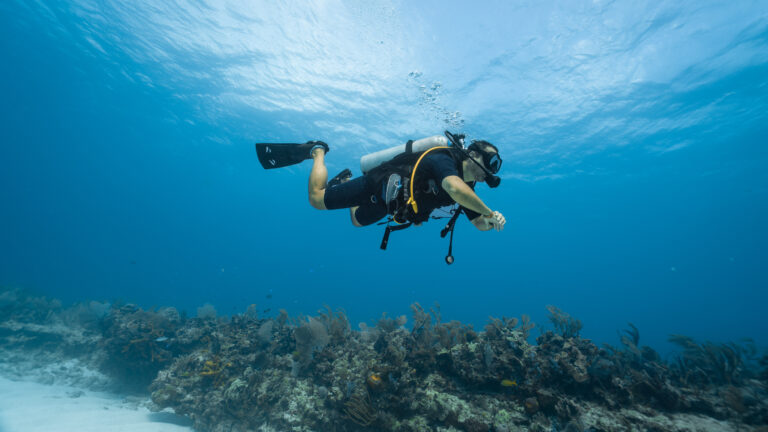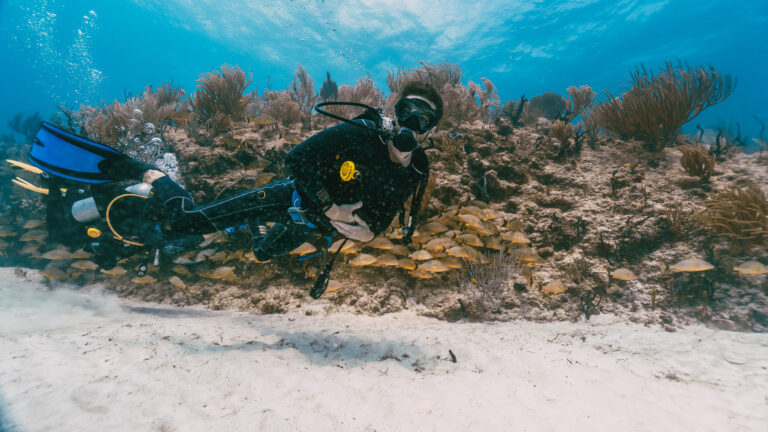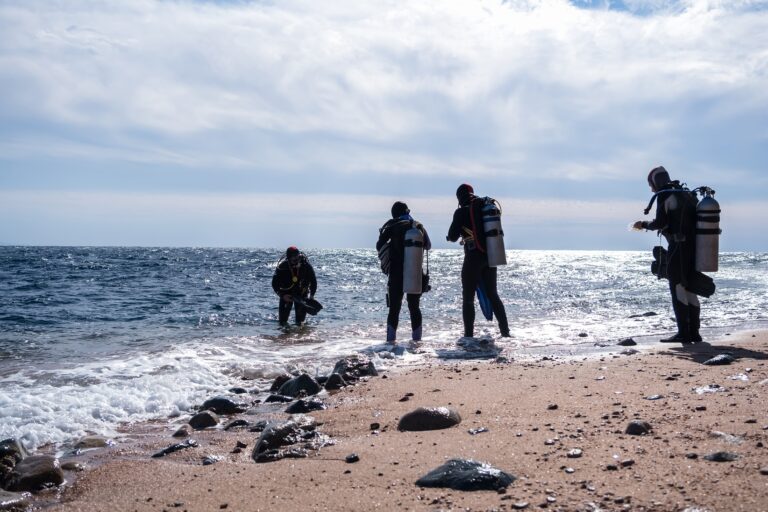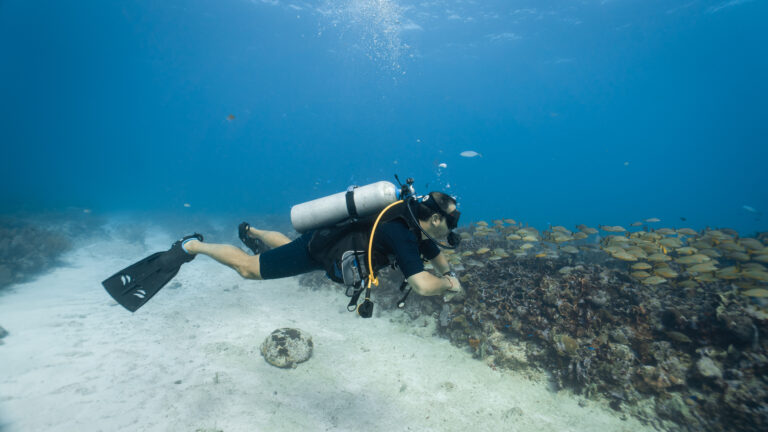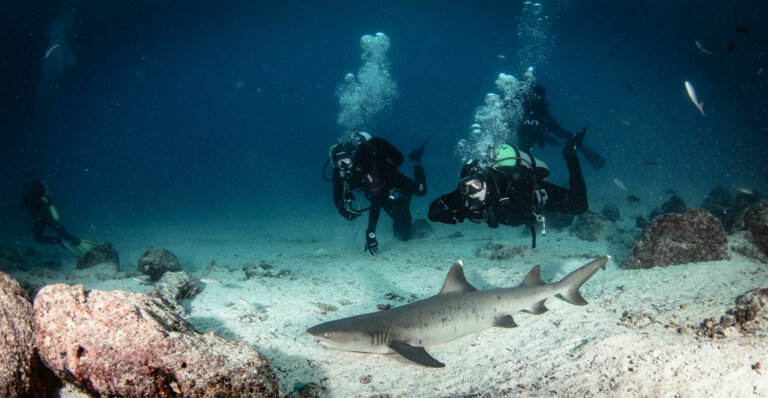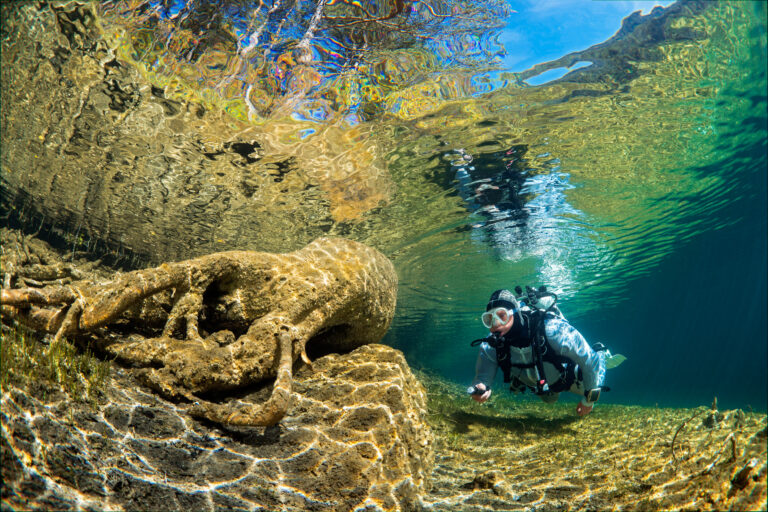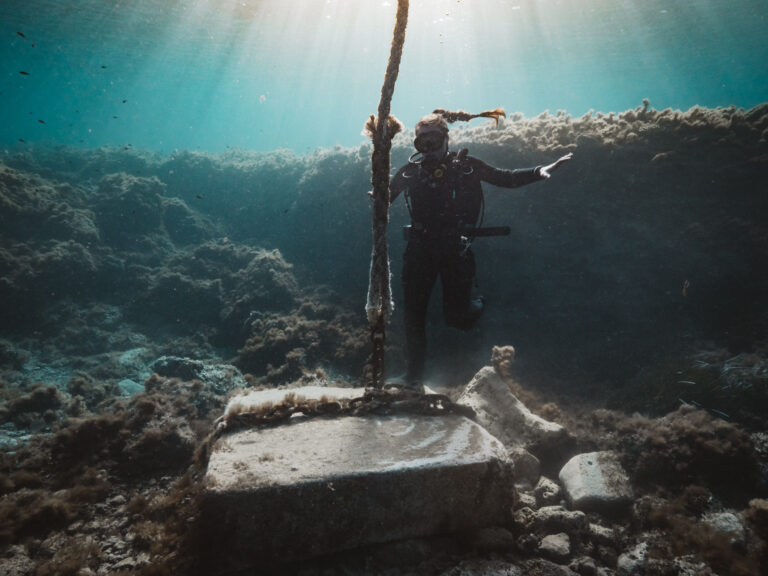SCUBA DIVERS’ TRAVEL GUIDE TO Jersey
Jersey is a small island in the English Channel, but it offers a big adventure for scuba divers. The island has a rich maritime history, with shipwrecks, caves, and reefs to explore. Jersey’s waters are home to a variety of marine life, including seals, lobsters, crabs, and cuttlefish. You can also enjoy the scenic views of the coastline, with cliffs, bays, and sandy beaches. Whether you are a beginner or an expert diver, Jersey has something for you. You can choose from different dive sites, ranging from shallow and sheltered to deep and challenging. Jersey is a destination that will surprise and delight you with its beauty and diversity. Come and discover the underwater wonders of this island gem.
LOCATION AND GEOGRAPHY
Nestled in the Bay of St. Malo, just off the coast of Normandy, France, the island of Jersey is the largest of the Channel Islands and a hidden gem for scuba diving enthusiasts. This British Crown Dependency boasts a unique blend of British and French cultural influences, which is reflected in its charming coastal towns and historic landmarks. Jersey’s geographical location, with its varied coastline, creates a diverse underwater landscape that includes rocky reefs, submerged pinnacles, and shipwrecks, all teeming with marine life. The island’s position also benefits from the warming effects of the Gulf Stream, providing relatively mild sea temperatures that enhance the diving experience. With its clear waters and rich marine biodiversity, Jersey’s underwater topography presents an intriguing world waiting to be explored, from the shallow reefs perfect for beginners to the deeper, more challenging sites that beckon experienced divers.
VISA AND ENTRY REQUIREMENTS
Before embarking on a scuba diving adventure to Jersey, one of the Channel Islands nestled between England and France, it is essential to understand the visa and entry requirements. Jersey is a British Crown Dependency, and while it is not part of the United Kingdom or the European Union, its immigration policies are closely aligned with the UK. Visitors from the UK, EU, EEA, and Swiss nationals do not require a visa and can enter with a valid passport or national identity card. Travelers from other countries should check if they need a visa, which would generally be the same as the UK’s Standard Visitor visa. It’s important to note that even with a Schengen visa, non-EU/EEA travelers may still need a separate visa for Jersey. Always verify the latest requirements with the Jersey Border and Immigration Service or the British Embassy well in advance of your trip to ensure a smooth entry to this underwater haven.
GETTING TO Jersey
Getting to Jersey, the largest of the Channel Islands, is a straightforward journey for scuba diving enthusiasts looking to explore its underwater marvels. Located just off the coast of Normandy, France, Jersey is well-connected by air and sea. Flights are available from major UK airports, with the island’s airport situated conveniently close to the capital, St. Helier. For those who prefer to travel by water, frequent ferries operate from both the UK and France, offering a scenic approach to the island. Upon arrival, the island’s compact size allows for easy access to a variety of dive sites, with local dive operators providing transport to more remote locations. Whether you’re arriving by plane or ferry, Jersey’s unique blend of British and French influences, along with its stunning marine landscapes, make it a captivating destination for divers of all levels.
BEST TIME TO DIVE
The best time to scuba dive in Jersey, the largest of the Channel Islands, is during the summer months, from May to September, when the water temperatures are more comfortable, ranging from 12°C to 17°C (54°F to 63°F). Visibility is at its peak during this period, often exceeding 10 meters, allowing divers to fully appreciate the island’s rich marine life and intriguing shipwrecks. The summer also brings longer daylight hours and generally calmer sea conditions, making it ideal for both novice and experienced divers. While diving is possible year-round, winter dives can be challenging due to colder water temperatures, which can drop to around 8°C (46°F), and less predictable weather conditions. Therefore, for the most enjoyable Jersey diving experience, aim for the warmer, clearer waters of the summer season.
ACCOMMODATION OPTIONS
Accommodation options in Jersey cater to a diverse range of preferences, ensuring that scuba divers can find the perfect base for their underwater adventures. From luxurious beachfront hotels that offer quick access to the island’s renowned dive sites to charming guesthouses and B&Bs that exude local character, there’s something for every budget and taste. Self-catering apartments and holiday cottages are popular among groups and families seeking a home-away-from-home experience, often providing facilities to rinse and store diving gear. For those looking to fully immerse themselves in nature, several well-maintained campsites are situated near the coast, allowing divers to stay within a stone’s throw of the sea. Many accommodations are accustomed to the needs of divers, with some offering package deals that include dive charters, equipment rentals, and even transportation to the island’s top diving spots, such as the enchanting underwater landscapes of the SS Normandy wreck or the lush kelp forests off the coast. Whether you’re looking for a touch of luxury or a rustic retreat after a day beneath the waves, Jersey’s range of lodgings will ensure your dive trip is comfortable and convenient.
DIVE OPERATORS AND DIVE SHOPS
In the picturesque waters surrounding the island of Jersey, a variety of dive operators and shops stand ready to cater to underwater enthusiasts of all levels. Whether you’re a seasoned diver or taking your first plunge, these establishments offer a range of services, from equipment rental and air fills to guided dive tours and PADI-certified training courses. The dive shops in Jersey are known for their friendly staff, who possess an intimate knowledge of the local dive sites, ensuring that visitors experience the best the region has to offer. With a focus on safety and environmental responsibility, Jersey’s dive operators often lead excursions to explore the island’s rich marine life, historic shipwrecks, and captivating reef systems. Divers can expect well-maintained gear, comfortable boats, and the warm hospitality that the island is known for, making for an unforgettable underwater adventure in the waters of Jersey.
TRANSPORTATION WITHIN Jersey
Transportation within Jersey, the largest of the Channel Islands, is convenient and efficient, making access to its prime scuba diving spots relatively straightforward for enthusiasts. The island’s compact size allows for easy travel by car, and rentals are available at the airport and in town centers. For those preferring not to drive, Jersey’s bus service, LibertyBus, offers comprehensive routes that cover most of the island, including popular dive sites along the coast. Taxis are readily available and can be a quick option for reaching more secluded dive locations. For the more adventurous, cycling is a popular choice, with many scenic routes that offer a leisurely approach to your diving destination. Regardless of your chosen mode of transport, the island’s well-maintained roads and clear signage will ensure a smooth journey to the underwater wonders that await.
CURRENCY AND PAYMENT METHODS
When traveling to Jersey for a scuba diving adventure, it’s important to note that the island uses the Jersey pound (JEP), which is pegged to the British pound sterling (GBP) at par. While British currency is widely accepted, Jersey notes and coins may not be easily exchanged outside the island, so it’s advisable to spend or exchange them before departing. Credit and debit cards are commonly accepted at most dive shops, hotels, and restaurants, especially in tourist areas. However, it’s always a good idea to carry some cash for smaller purchases, tips, or in places where cards may not be accepted. ATMs are readily available, but be mindful of potential fees for international transactions. For the best exchange rates, consider obtaining pounds before you travel or use a local currency exchange service once you arrive in Jersey. Always inform your bank of your travel plans to avoid any issues with card usage abroad.
LANGUAGE AND COMMUNICATION
When diving in Jersey, the primary language for communication both above and below the water is English. Dive briefings, emergency procedures, and equipment discussions are typically conducted in English, making it essential for divers to have a good understanding of the language to ensure safety and clarity during the dive. However, Jersey’s dive community is welcoming and diverse, with many dive operators and guides also having proficiency in other languages such as French, reflecting the island’s proximity to France and its bilingual heritage. Underwater, divers use standard hand signals to communicate, which are universally recognized in the diving community. It’s important for divers to be familiar with these signals to effectively communicate with their buddy and dive leader, especially in Jersey’s waters where visibility can vary. Whether discussing the day’s dive plan over a cup of tea or signaling the sighting of a cuttlefish beneath the waves, clear communication is key to a successful and enjoyable dive experience in Jersey.
LOCAL CULTURE AND ATTRACTIONS
Nestled in the Bay of St. Malo, the island of Jersey is not only a diver’s paradise with its clear waters and abundant marine life but also a vibrant tapestry of culture and history. Above the surface, visitors can immerse themselves in the local charm by exploring the cobbled streets of St. Helier, where Victorian markets meet contemporary art spaces. The island’s rich history is palpable at every turn, from the imposing Mont Orgueil Castle, which has stood guard over the island for centuries, to the poignant War Tunnels that delve into Jersey’s wartime past. Gastronomes will delight in the fresh seafood and rich dairy products, hallmarks of Jersey’s culinary scene, while the annual Battle of Flowers, a riot of color and community spirit, showcases the island’s festive side. Whether you’re sipping on locally produced cider after a day underwater or joining in the traditional céilí dances at a local pub, Jersey’s blend of British and French influences offers a cultural experience as captivating as its underwater wonders.
CULTURAL ETIQUETTE AND TIPS
When scuba diving in Jersey, an island with a unique blend of British and French influences, it is important to approach the local culture with respect and courtesy. Islanders, known as Jerseyans, are proud of their maritime heritage and appreciate when visitors show interest in their local customs and history. It is customary to greet with a friendly ‘hello’ and a smile, and politeness is highly valued. When interacting with dive operators and local fishermen, be sure to ask permission before entering private jetties or taking photographs of their boats and gear. It’s also considered good manners to support local businesses by purchasing souvenirs or dining at establishments that source their seafood sustainably. As an island that is conscious of environmental conservation, divers are expected to adhere strictly to marine protection guidelines, such as not disturbing the seabed or taking marine life. After your dive, joining the locals at a pub for a pint and sharing stories is a great way to immerse yourself in the community – just remember to offer to buy a round if you’ve been treated to one, as reciprocity is part of the social fabric. By showing respect and following these simple cultural etiquette tips, you’ll ensure a richer and more welcoming experience in Jersey’s waters.
LOCAL LAWS AND REGULATIONS RELEVANT TO TOURISTS
Before plunging into the waters around Jersey, it is crucial for scuba divers to acquaint themselves with local laws and regulations to ensure a safe and lawful experience. Jersey, while not a part of the United Kingdom, follows similar maritime and environmental guidelines. Divers must respect no-take zones and marine protected areas, where removing any wildlife or artifacts is strictly prohibited. It is mandatory to use a dive flag to alert boats to the presence of divers below. Additionally, divers should be aware of the local fishing laws, which may restrict spearfishing or the collection of shellfish. Jersey requires divers to have a valid certification and to dive within the limits of their training. Furthermore, the island enforces strict regulations on the use of underwater scooters and other motorized equipment to protect the marine environment. It is advisable to check with the local dive shops or the States of Jersey website for the most current information on diving regulations, as these can change and may vary depending on specific sites around the island.
SAFETY TIPS AND EMERGENCY CONTACTS
When planning a scuba diving trip to Jersey, prioritizing safety is paramount. Always dive within your certification limits and ensure that your equipment is serviced and suitable for the local conditions. Jersey’s waters can be challenging due to strong tides and varying visibility, so it’s crucial to dive with a buddy and stay informed about the weather and tidal forecasts. Before your dive, familiarize yourself with the local emergency procedures and ensure that you have access to a means of communication, such as a marine VHF radio or a mobile phone in a waterproof case. The local emergency services are well-coordinated, and in case of an underwater emergency, you should contact the Jersey Coastguard on VHF Channel 82 or by dialing 999 or 112. It’s also advisable to know the location of the nearest recompression chamber, which is the General Hospital in St. Helier, and have the contact details at hand. Remember to dive with a reputable dive operator who knows the area well and can provide you with the latest safety information and support.
HEALTH AND TRAVEL INSURANCE
When planning a scuba diving trip to Jersey, it is crucial to consider your health and travel insurance coverage. The island’s waters offer a blend of temperate and marine life-rich environments, but diving always carries inherent risks. Ensure that your insurance policy includes comprehensive coverage for scuba diving activities, as standard policies may exclude such specialized sports. Look for policies that cover hyperbaric treatment, medical evacuation, and repatriation in case of a diving accident. Jersey has a decompression chamber on the island, but severe cases may require transfer to the UK or France. Additionally, verify that your insurance covers potential travel disruptions, such as flight cancellations or lost diving equipment. It’s also wise to carry your insurance documents and emergency contact information with you at all times. By securing the right insurance, you can dive into Jersey’s underwater wonders with peace of mind, knowing you’re well-protected above and below the surface.

